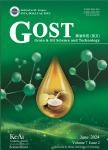The potential of legume-derived proteins in the food industry
The potential of legume-derived proteins in the food industry作者机构:The Institute of Biochemistry and NutritionThe Robert H.Smith Faculty of AgricultureFood and EnvironmentThe Hebrew University of JerusalemRehovot 76100Israel
出 版 物:《Grain & Oil Science and Technology》 (粮油科技(英文版))
年 卷 期:2022年第5卷第4期
页 面:167-178页
核心收录:
学科分类:0832[工学-食品科学与工程(可授工学、农学学位)] 08[工学] 083201[工学-食品科学]
基 金:The authors wish to thank Dr. Bar-El for her contribution.
主 题:Legumes Plant protein Food industry Techno-functional properties Fat and protein composition
摘 要:Legume-derived proteins present an opportunity to replace existing animal-source protein in various applications. Those proteins are abundant, relatively lowcost, sustainable, not highly allergenic, and widely acceptable by consumers. In this paper, it was found that legume-derived protein’s technofunctional properties(e.g. gelation, emulsification and foaming) are being investigated, in order to assess their ability to substitute for animal-derived proteins in food systems and applications. This paper reviewed the functional attributes of legume-derived proteins, their possible applications in food systems, and their potential in the food industry. The techno-functional properties of the proteins vary among different legumes, and while some proteins properties are sufficient for industrial uses, the other may need to be modified. It was concluded that legume-derived proteins could replace some existing animal-derived protein based food systems.



